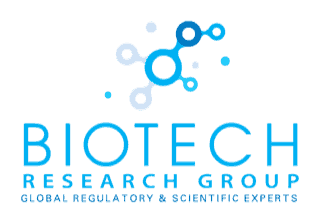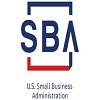Implementation of HFE Principles in Medical Device Design
05/20/2019
Category: FDA 510k consultant
Healthcare facilities consist of complex, multi-faceted work systems. The introduction of new medical devices in these systems can result in undesirable events such as medical errors. Medical device developers have a large responsibility to design products that are safe for their intended environment. Imagining their medical device in hospitals all over the country and saving or enhancing the lives of many patients can be an alluring thought but can immediately turn into a nightmare if the product causes preventable harm to a patient. Medical device developers can become consumed with the FDA requirements and the process of obtaining 510k approval, and little time may be alloted to the safety portion of the design process. Regardless of how overwhelmed or anxious the sponsor may be, a safety review including human factors engineering (HFE) principles should be applied. It may be difficult to apply HFE principles to a medical device that has not been introduced to a dynamic environment, however ascertaining comparable products and reviewing their user errors may help with your product’s safety.
Also Read : Common Reasons for IND Clinical Holds
A knowledgeable FDA 510k consultant may suggest some design changes in your product to prevent known human errors after reviewing MAUDE, the FDA’s voluntary reporting system.This resource is helpful for learning about device-related issues, as is a diligent search on other third-party websites. Not even the best FDA 510k consultant can take into account every work environment and human factor that could create injury or death utilizing your medical device, but they can attempt to address all limitations in the design by utilizing considerable research. Medical device developers should not only focus on the ease of use and effectiveness of their device but also on safety. An FDA 510k consultant can examine the proposed work environment and the type of operators for the medical device to examine what distractions or mental demands may exist when operating the medical device. Introducing human factors engineering during the development process should not be a second thought, since safety optimization of the medical device should be the main goal.
An FDA 510k consultant can advise about introducing secondary defense mechanisms that can be incorporated into the product design to prevent any design changes. The lowest impact of design change occurs at the conceptualization stage and increases minimally at the design and evaluation stages. However, once a product developer has entered the manufacturing and distribution stages, the impact sky rockets.
An FDA 510k consultant knows this could result in potential scrapping, delay in release, or packaging changes. Collaborations between the medical device developer and an FDA 510k can have a positive outcome for the minimum product-design requirements while avoiding any known safety risks. This type of collaboration produces innovation, allowing the parties to apply safety requirements in a systematic and scientific approach based on extensive review of appropriate surveillance systems. Regulatory consulting firms experienced with HFE principles will assist in designing safer medical devices and identifying the safety risks early in the design stage to minimize errors in complex environments which will improve patient safety.
Author Information
BRG is a global scientific & regulatory consulting firm with extensive experience in the strategic development of drug products, biologics, medical devices, combination products and in FDA regulatory affairs. BRG is a pharmaceutical consulting firmfocusing on NDA regulatory services, 510k services, and IND consulting services. The opinions and statements in this blog are those of the authors and do not necessarily reflect those of BRG. This blog is based on personal experience and reviews of information publicly available or identified in other database searches.
Christina Sanchez Miller, MPH has over 20 years of management, biologics, quality assurance and research experience in the medical field. She is a published author in scientific books, papers and has presented at several international conferences. Christina has developed medical applications in the biologics field. Her experience includes operations and consulting in FDA Adverse Event Reporting, FDA Product Deviation Reporting, FDA 483s, cGTPs, infection control, certified ISO Class 5, 7, 8 development and maintenance, QIC and auditing.
tagging: FDA 510k consultant


